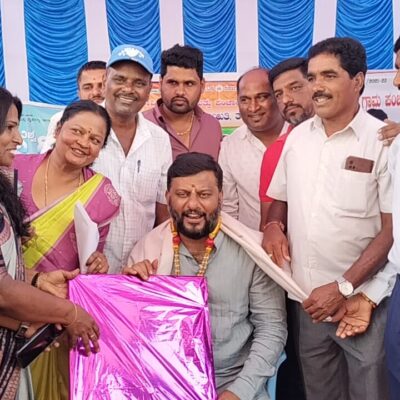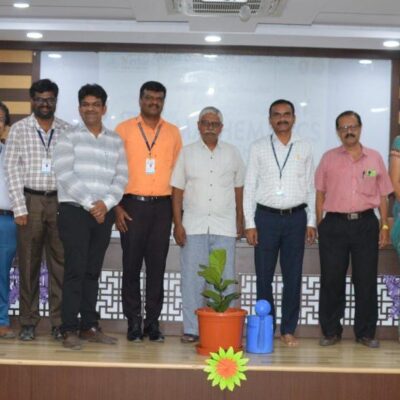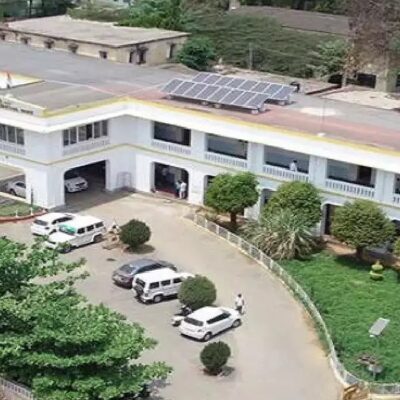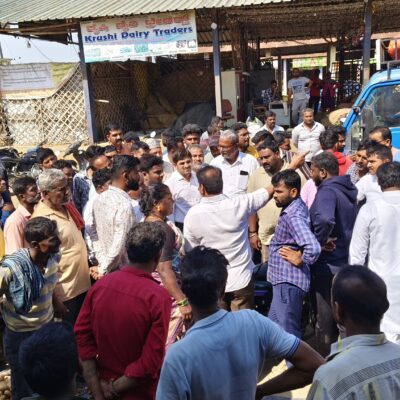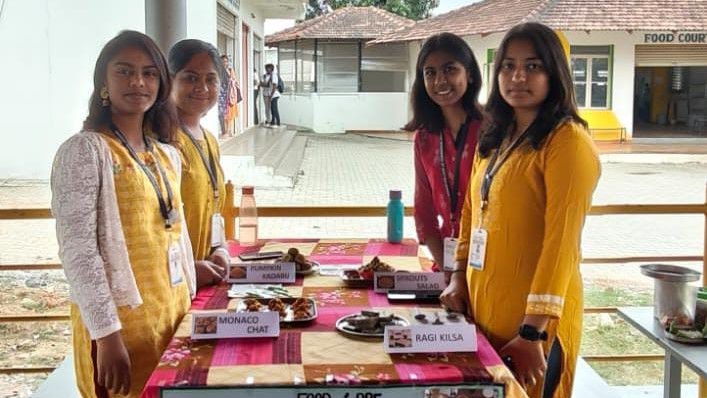
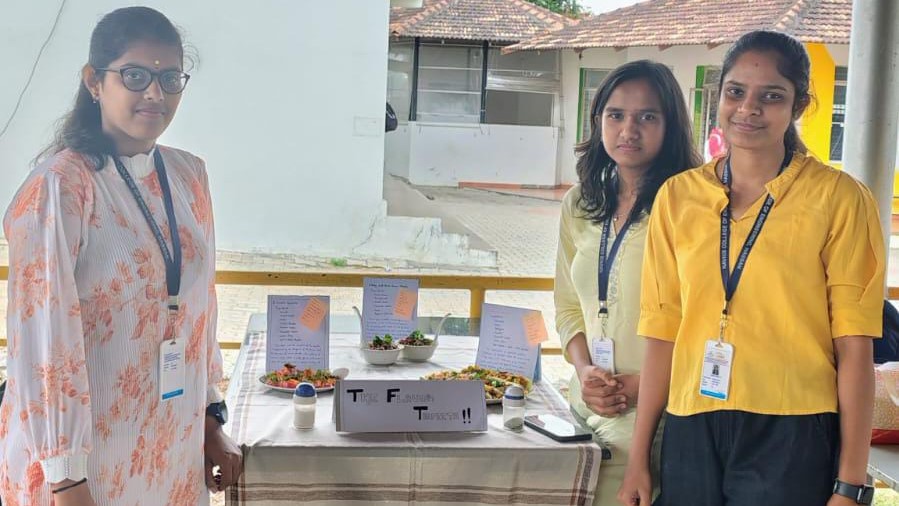
Hassan: “The Kannada language has a history of more than 2,000 years, and Kannada has its own pride of place and identity in the story of the development of Indian languages. This is evidenced through life portrayals in literature and culture and the ancient Kannada inscriptions which have been discovered over the centuries,” a senior lecturer has said.
After inaugurating a programme to mark the 69th Kannada Rajyotsava celebrations in the city, Krishnaiah, a lecturer with the Government Boys’ Pre-University College in the district, addressed students of Navkis Engineering College on Tuesday. He said that today is the day Karnataka was unified as a state.
“This is a very special day for us Kannadigas. We are a people united for the cause of Kannada. Many areas of the Kannada-speaking territory, which were scattered across multiple provinces before Independence, were united under one umbrella. Thousands of Kannadigas have worked day and night for administrative and emotional unity. I remember all those great souls with gratitude today,” he said.
Sripada Markandeya, Dean of the College, said, “Alur Venkataraya was a prominent figure in the Karnataka unification movement, along with Gudleppa Hallikeri, Siddappa Kambli, R.H. Deshpande, Rangarao Diwakar, Kaujalagi Srinivasa Rao, Goruru Ramaswamy Iyengar, H. Mariyappa, Subramanya Swamy Iyengar, S. Nijalingappa, Chennaiah, T. Veeranagowda, H.C. Dasappa, H. Siddaiah, and K.R. Karanth. These mahatmas played a vital role in the struggle for a united Kannada land and worked hard to make Karnataka an officially Kannada-speaking state. Those who raised their voices to a large extent for the unification of Karnataka were writers and politicians. National poet Kuvempu also stood in support of the unification of Karnataka. His song ‘Jai Bharat Jananiniya Tanujathe’ is the anthem of our state.”
In her speech at the programme, Babita Jain, Dean of the ECE department, said that although Karnataka was unified after the country got Independence, there was a cry for unity of the Kannada-speaking regions even before Independence. But first, the idea of linguistic unity after Independence was brought up by the activists of that time. Literary figures, thinkers, and writers rallied in favour of unification through their writings.
Coordinators of the programme were Dr. Vivekananda, Kannada professors Satish Seeguru, Dr. Pratap Kumar, Varshita, Mitha Yashaswini Y, and the staff.
A food fair was also organized by the students on the occasion.

